What is Salesforce Marketing Cloud?
Salesforce Marketing Cloud, formerly known as Exact Target, is a CRM platform for marketers that offers a number of possibilities for managing marketing relationships and campaigns. This platform was designed to improve customer engagement and the way marketing decisions are made.
Marketing Cloud is a SaaS platform that was designed with four base versions. Each version has a different function, making them compatible with different marketing situations and organizations. Although this platform was designed to be used in B2C, it can also be used in B2B.
Features and benefits of Salesforce Marketing Cloud
1. Email marketing
Salesforce Marketing Cloud comes with a professional-level email marketing feature that enables businesses to nurture relationships with their customers.
With the email marketing feature, businesses can use email personalization and segment their emails with drag-and-drop segmentation tools. It also provides customers with insights for identifying active and inactive subscribers so they can channel their marketing efforts to the right audience.
2. Journey Builder
Journey Builder is a feature of Marketing Cloud that manages every step of the customer life cycle—from reach to acquisition, conversion, and building loyalty. This feature makes use of data related to customer activity, can range from users abandoning a cart to signing up for a program, etc. Journey Builder uses these events to respond to customers’ unique needs, meet them at every touchpoint, and personalize every stage of their journey.
3. Data management
Salesforce Marketing Cloud has made data management easier through the use of data extensions. These extensions can be put together to form a database that can store and provide access to related data points. The ability to support different types of data allows for more complex audience segmentation.
4. Integration capabilities
One of Marketing Cloud’s most significant features is the numerous integration scenarios it supports. The APIs on Salesforce Marketing Cloud can be used to import content, initiate triggered email campaign sends, and augment existing contact information. Salesforce Marketing Cloud can also be connected to Salesforce Sales Cloud.
5. Third-party applications
Marketing Cloud includes an extensive list of third-party applications. It also contains third-party applications from Salesforce AppExchange that increase its functionality; these can be customized to suit your business goals. Recently, Salesforce integrated Marketing Cloud with Google Analytics 360, which broadened its horizons and added value to the existing features.
6. Mobile Studio
This module consists of GroupConnect, MobileConnect, and MobilePush. GroupConnect is responsible for sending messages to contacts via messaging apps. MobileConnect enables Marketing Cloud users to create, send, receive, and track SMS and MMS text messages, as well as alerts and transactional messages. MobilePush is designed to manage and send push notifications on mobile apps.
7. Social Studio
Marketing Cloud Social Studio enables organizations to manage and monitor social media efforts. It features post-scheduling, real-time engagement, search analytics, grouping posts by brand, region, or multiple teams and individuals in a unified interface.
Salesforce Marketing Cloud vs. Salesforce Sales Cloud
Marketing Cloud is a Salesforce product that focuses on delivering personalized experiences for every customer journey. It consists of integrated solutions for customer journey management; email, mobile, and web personalization; advertising; and much more. Sales Cloud, on the other hand, is a product for sales managers that helps enhance sales and revenue.
Services related to Salesforce Marketing Cloud
